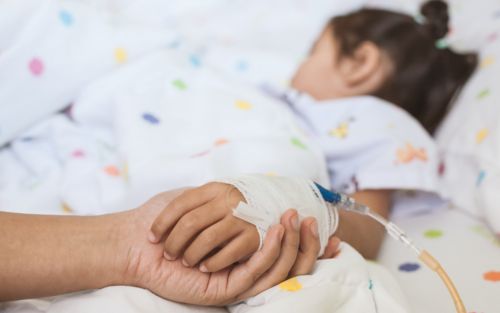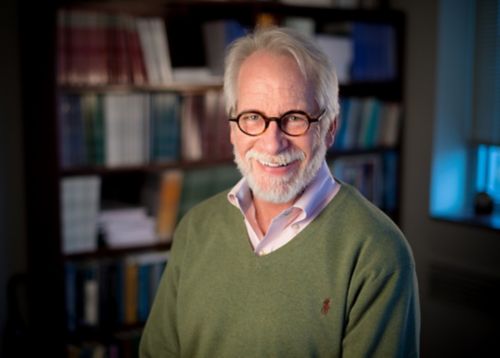St. Jude Family of Websites
Explore our cutting edge research, world-class patient care, career opportunities and more.
St. Jude Children's Research Hospital Home

- Fundraising
St. Jude Family of Websites
Explore our cutting edge research, world-class patient care, career opportunities and more.
St. Jude Children's Research Hospital Home

- Fundraising
The double-edged sword of being both parent and blood stem cell donor

Innovations in pediatric blood stem cell transplantation mean parents can now serve as donors for children without fully matched donors. The advance has expanded access to the lifesaving treatment also called bone marrow transplantation. However, less is known about how the dual role affects parents in the long term.
St. Jude Children’s Research Hospital is at the vanguard of pediatric stem cell transplantation. The procedure relies on parents and other related donors who provide a partial genetic match to patients. Given the emotionally charged nature of the process, psychologists at St. Jude wanted to know if parents who served as donors for their children were at greater risk than nondonor parents for adjustment issues after the procedure.
The answer depends on the treatment outcome, according to research led by Sean Phipps, PhD, Psychology department chair. The findings appeared recently in Bone Marrow Transplantation.
“Parental donation can serve to some extent as a double-edged sword, as a promoter of adjustment, or as a buffer against stress for donors when the child survives,” Phipps says, “but also as a risk factor for donors when the child doesn't survive.”

Sean Phipps, PhD
First author Vanessa Aguilera, PsyD, a postdoctoral fellow, examined the findings from a variety of psychological assessments that were given to parents of bone marrow transplantation patients. Parental donors whose children responded to treatment had lower stress levels and greater life satisfaction than nondonor parents. However, donor parents whose children died experienced larger increases in negative psychological outcomes than nondonor parents.
The finding suggests that being a donor magnifies the emotional response to transplantation. The effect was particularly evident on measures of grief. Bereaved parent donors had higher levels of prolonged or pathological grief than nondonor parents.
The parental donor experience
In a separate study, researchers asked donor and nondonor parents open-ended questions about their experience with bone marrow transplantation. All parents reported being well educated about the transplant rationale, but many expressed feeling ill-prepared for the emotional challenges.
Several parents noted that in retrospect it was impossible to fully prepare for bone marrow transplantation. As an example, the actual transplant involves an infusion of donor cells. Some parents highlighted the emotional disconnect of the significance and unexpected anticlimactic nature of the infusion. The parental donors described difficulty reconciling the simplicity of the procedure with the meaning and significance of seeing their donated cells being given to their child.
Based on the results, Phipps urged clinicians “to recognize how significant this process is for both the donor and the nondonor parent. It calls for greater attention to donor parents, and to be more proactive both in preparation and in follow up.”
Parents also described the difficulties of participating in the bone marrow transplantation process. Parents commonly cited logistical challenges, intense emotions and physical exhaustion. Many experienced significant strains on their quality of life, including financial and marital difficulties. Many found meaning and benefits, including stronger child-parent relationships.
Postdoctoral fellow Megan Schaefer, PhD, was first author of the study, which appeared in Pediatric Blood & Cancer.
Early intervention advised for parents
The studies revealed that parents of bone marrow transplantation patients need more proactive psycho-emotional support. Phipps plans to increase parent education prior to transplantation so parents know what support is available.
“Bereaved parents are a high-risk group to begin with,” Phipps said. “We should be very concerned about all of our parents who lose children, but bereaved parents who were donors are at particularly high risk, and thus we really need to target our bereavement care at those parents.”
The other St. Jude authors are Brandon Triplett, MD, of the Bone Marrow Transplantation and Cellular Therapy department, and Kendra Paris, PhD, and Alanna Long, of the Psychology department.






